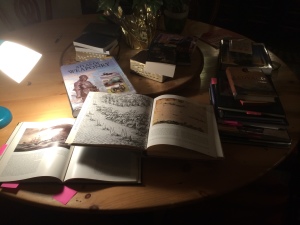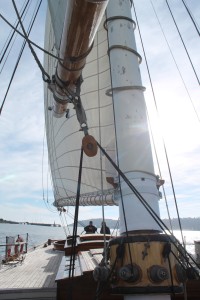A few years ago I heard a successful author say that you should have unique setting for most of your novel. Don’t use the same setting too much, especially in a fantasy or sci-fi story where you want to create a continuous sense of wonder for the reader.
As I wrote the first novel I wanted to publish, I took this to heart. Each time I had a new scene, it would be in a different place. It worked for the story, because the characters were on the run much of the time.
The story, New Sight, takes place in the western United States in modern times. Easy for setting, because I didn’t have to make up a bunch of world building rules and such. I remember pulling up Google Maps and charting where I wanted my characters to go. I needed a place of some mystical value, and I Googled that as well. When I had a basic roadmap, I started looking for interesting things in or near the places I wanted to use.
I found a hotel in Colorado that is an old drive-in movie theater. They’ve built it so that you can watch a movie through a huge window in your room while you’re lounging on your bed. I used this in one version of my story, but it didn’t make the final cut. Still, I may use it later for something else. Curiosity piqued? Check it out here.
I found out that Las Vegas has a hidden society of poor people living in the storm drains under the city. Yes please, totally used this. Sort of. Here is the article that my sister sent me after we’d been talking about it.
I found out that a little-known hike in Canyonlands leads to a place called Druid Arch. Some people think it is of mystical importance. Score!
That’s just a few examples. I’d been to Las Vegas, and didn’t end up using the hotel, but I wanted to go to Druid Arch. It took me a few months of getting into better shape, and one failed attempt due to stupid snow in April, but I finally got there.
I’d searched for info on the hike, and had found pictures and descriptions of it. Which gave me a good idea of what to expect. I dragged a few friends along with me. We only got lost once or twice for a few minutes, but in the end made it.
It was so fun seeing the place for myself. Feeling it. Smelling it. Hearing it. I added a few new details to the scenes I’d written there before my final manuscript went out. And, after I got my rights back from my original publisher, I used my own photos on the new cover. With help from an actual artist, of course.
It’s not always practical to visit the places you use in your stories, but at least take the time to Google them. You’ll be amazed at what you find from interesting landmarks to urban legends to people in the sewers.





